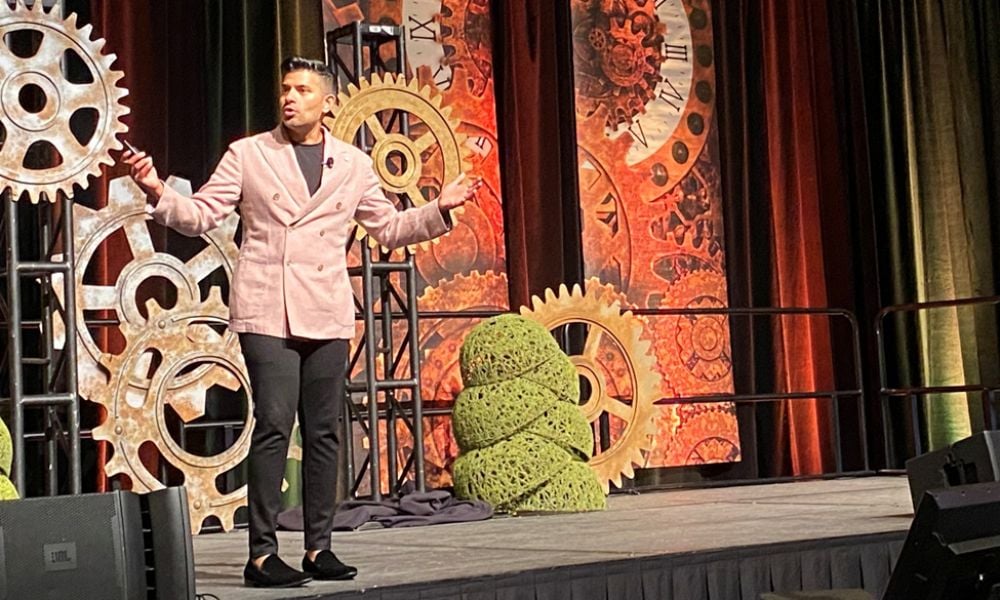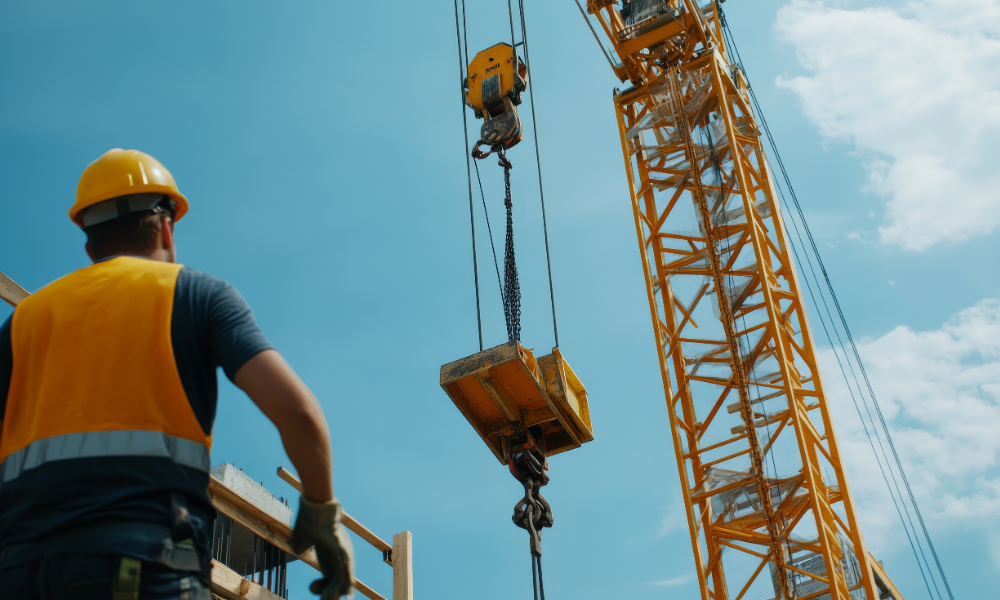Why health and safety leaders may want to create more friction among workers

In a compelling opening keynote presentation at the Health and Safety Professionals of Canada Professional Development Conference 2024, innovation strategist Shawn Kanungo explored the transformative impact of artificial intelligence (AI) on the health and safety industry. His talk, punctuated by anecdotes and insightful observations, emphasized the dual nature of AI as both a powerful tool and a potential disruptor, especially in terms of trust.
Kanungo began by acknowledging the pervasive influence of AI, asserting, “we are entering a new type of world because of AI.” He highlighted AI’s capacity to democratize work, enabling unprecedented efficiencies in data analytics and decision-making. For health and safety professionals, this translates into the ability to swiftly analyze massive datasets, uncover trends, and develop actionable insights. “Imagine putting a million-line Excel document into an AI system and getting visualizations and recommendations in seconds,” he illustrated.
Technology deteriorating trust
Despite the enthusiasm, Kanungo did not shy away from addressing the darker implications of AI. Central to his discourse was the erosion of trust in an AI-dominated era. He recounted a startling incident to underline this point: “This past weekend, I saw a news alert that Trump got shot. My friends’ immediate reactions were, ‘Is this real? Is this AI? Or is this staged?’ This is where we are in 2024, where even well-documented events can be questioned.”
Kanungo stressed that the health and safety sector is particularly vulnerable to this trust deficit. “In a world where AI can fabricate convincing deepfakes, the role of safety professionals becomes disproportionately more important. We are hungry for trust,” he stated emphatically. He argued that professionals in this field are not just in the business of ensuring safety but are also custodians of trust.
Why friction builds trust
Building and maintaining trust in this context, according to Kanungo, requires embracing what he termed “the F-word: friction.” In an era that celebrates frictionless experiences, he suggested that introducing deliberate friction can enhance trust and human connection. “Health and safety are about trust. The way to drive value is by doubling down on humanity,” he declared. This means creating meaningful, memorable, and awe-inspiring interactions, even as AI handles routine tasks.
Kanungo provided actionable insights for safety professionals to build trust amidst these challenges. He advised leveraging AI to handle data-intensive tasks while focusing on human-centric aspects of safety management. For instance, while AI can analyze incident reports and predict safety risks, the implementation of safety protocols should involve personal interactions and transparent communication. “AI can be an incredible starting point, but the final deliverable should always be humanized,” he asserted.
In concluding his talk, Kanungo posed a provocative question: “Are you willing to disrupt yourself?” He urged professionals to adopt a mindset of continuous innovation, to question existing processes, and to be willing to let go of status and traditional ways of working. “In a world of radical change, what has never changed are human values like trust and integrity. These should be at the core of our strategies,” he concluded.
Kanungo’s presentation was a call for health and safety professionals to not only harness the power of AI but also to be vigilant guardians of trust in an increasingly skeptical world. His insights provide a roadmap for navigating the complexities of AI while maintaining the essential human touch that is critical in ensuring workplace safety.





